
Un artículo publicado por el periódico The New York Times sostiene que Roberto Micheletti habría recibido “consejos” de parte de un ex asesor de Bill Clinton, durante la reunión de mediación que sostuvo en Costa Rica con el presidente Óscar Árias.
Roberto Micheletti, habría recibido asesoramiento en las propuestas que presentó dentro del proceso de mediación que lleva a cabo el presidente de Costa Rica para dar fin con la crisis que vive la nación centroamericana tras el golpe que sacó del poder al presidente Manuel Zelaya.
De acuerdo con el diario The New York Times, las propuestas de la delegación de Micheletti en las reuniones conciliadoras de Costa Rica fueron redactadas y aprobadas por el estadounidense Bennett Ratcliff, quien estuvo la semana pasada en San José durante el diálogo entre los enviados de Micheletti y representantes de Zelaya.
De acuerdo a la publicación, el día de la reunión con el presidente de Costa Rica, Micheletti habría llevado a seis consejeros y no a cuatro, como inicialmente se había acordado.
“Micheletti se apareció con seis, incluyendo a un especialista americano en Relaciones Públicas que ha hecho trabajos para el ex presidente Bill Clinton”.
Según el periódico también habría estado presente el intérprete del presunto especialista americano y “un oficial cercano a las conversaciones dijo que el equipo raramente hacía algún movimiento sin consultarle”.
El reporte del periódico destaca que la administración de Obama ha intentado “distanciarse de la crisis como parte de un esfuerzo para hacer de los Estados Unidos un jugador más en la región que durante tanto tiempo ha dominado. Y los líderes latinoamericanos han expresado públicamente su apoyo por lo que describen como el nuevo espíritu de colaboración de Washington”.
El artículo continúa diciendo que “en privado, y no tan en privado, sin embargo, se ha hecho claro que líderes en todos los bandos de esta crisis ven a los Estados Unidos como la llave para tener lo que quieren”.
Según Ginger Thompson, periodista del Times, Micheletti “se ha embarcado en una ofensiva de relaciones públicas” que incluye la contratación por parte de quienes le apoyan de abogados de Estados Unidos “de alto perfil” con estrechos vínculos en los círculos de poder de esa nación para impedir sanciones más fuertes contra el país centroamericano.
Uno de los que se menciona es Lanny Davis, conocido por servir de abogado personal de Clinton y miembro de su campaña, según apunta Thompson.
Estos diálogos se comenzaron a desarrollar en Costa Rica desde el jueves 9 de julio, entre comisiones del gobierno de facto y del presidente Zelaya, que tienen como mediador al presidente Óscar Arias.
http://www.noticias24.com/actualidad/noticia/66105/nyt-ex-asesor-de-bill-clinton-habria-ayudado-a-micheletti-en-costa-rica/
Honduran Rivals See U.S. Intervention as Crucial in Resolving Political Crisis
SAN JOSÉ, Costa Rica — When President Óscar Arias of Costa Rica set out to find a negotiated solution to the Honduran political crisis, he hailed it as an opportunity for Central Americans to show they could resolve their own problems, and he established some simple ground rules.
The ousted president of Honduras, Manuel Zelaya, and the man who leads the de facto government that replaced him, Roberto Micheletti, were each to show up at his house with just four of their closest Honduran advisers.
On Thursday morning, Mr. Micheletti showed up with six, adding an American public relations specialist who has done work for former President Bill Clinton and the American’s interpreter, and an official close to the talks said the team rarely made a move without consulting him.
Then on Friday, with the negotiations seemingly going nowhere, Mr. Arias reached out for American support of his own, telling Secretary of State Hillary Rodham Clinton that pressure from the United States was crucial to ending the stalemate.
In the two weeks since the coup against Mr. Zelaya, the Obama administration has taken great pains to distance itself from the crisis as part of an effort to make the United States just one of many players in a region that it has long dominated. And Latin American leaders have publicly expressed support for what they describe as Washington’s new spirit of collaboration.
Privately, and not so privately, however, it has become clear that leaders on all sides of this crisis see the United States as the key to getting what they want.
In recent days, Mr. Zelaya and his allies, who include some of the most vocal critics of United States policy in the region, have repeatedly called on Washington to increase its pressure on Mr. Micheletti by recalling its ambassador — the United States is one of the few countries in the region that continues to keep its envoy in Tegucigalpa, the Honduran capital — and by imposing tougher sanctions.
Even Venezuela’s president, Hugo Chávez, made a rare call to Assistant Secretary of State Thomas A. Shannon Jr. on Friday to directly make an appeal he had issued earlier on television.
“Do something,” Mr. Chávez had said to reporters. “Obama, do something.”
Meanwhile, Mr. Micheletti has embarked on a public relations offensive, with his supporters hiring high-profile lawyers with strong Washington connections to lobby against such sanctions. One powerful Latin American business council hired Lanny J. Davis, who has served as President Clinton’s personal lawyer and who campaigned for Mrs. Clinton for president.
And last week, Mr. Micheletti brought the adviser from another firm with Clinton ties to the talks in Costa Rica. The adviser, Bennett Ratcliff of San Diego, refused to give details about his role at the talks.
“Every proposal that Micheletti’s group presented was written or approved by the American,” said another official close to the talks, referring to Mr. Ratcliff.
With or without the presence of foreigners, Mr. Arias faces long odds against success. Mr. Zelaya and Mr. Micheletti refused to meet face to face and left the talks before the end of the first day. And while there was less hostility between the two delegations on Day 2, an official close to the talks said Mr. Arias was unable to get the groups to agree on a date for the next round of talks or even to shake hands in front of the throngs of reporters gathered outside his home.
“He told them, the Palestinians and Israelis were enemies for generations, and their leaders shook hands,” an official said, referring to Mr. Arias. “You all were friends until two weeks ago. And yet you cannot make one symbolic gesture?”
But people who are familiar with the talks — diplomats, lawyers and government officials who attended the meetings or monitored them from offices in Costa Rica, the United States and Honduras — said the sessions produced at least one important breakthrough: leaders on both sides of the divide moved beyond their blustery statements so that mediators could identify the real obstacles to a peaceful compromise.
Among the most intractable of those obstacles, said three officials close to the talks, was Mr. Micheletti. While Mr. Zelaya indicated that he was willing to accept a compromise that would return him to office with significantly limited powers, the officials said, it appeared that Mr. Micheletti believed he could run out the clock and hold on to the presidency until his country’s presidential elections in November.
The officials said Mr. Arias told Mrs. Clinton that the United States had to make clear to Mr. Micheletti that elections held by an illegitimate government would themselves not be considered legitimate.
However, one official said that the United States wanted to be careful “not to take a huge public role.” He said the United States indicated that it would quietly make clear to Mr. Micheletti that the $16.5 million it has already suspended in military aid could be expanded to include $180 million in other economic development assistance that is still under review.
Mr. Micheletti’s supporters are pushing back in part by paying hundreds of dollars an hour to well-connected Washington lawyers who have initiated a charm offensive from Washington. On Friday, Mr. Davis was testifying on Capitol Hill in support of Mr. Micheletti’s de facto government.
And on Saturday, Mr. Davis called reporters close to midnight to notify them that Mr. Micheletti had fired Enrique Ortez, whom he had appointed as his foreign minister, for having outraged American officials by referring in a television interview to President Obama as “that little black guy who doesn’t even know where Tegucigalpa is located.”The New York Times
http://www.nytimes.com/2009/07/13/world/americas/13honduras.html?_r=2&scp=1&sq=Micheletti&st=cse












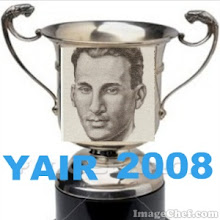
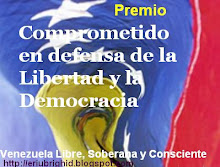
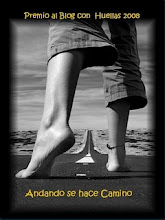




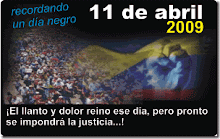






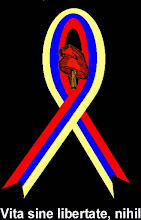

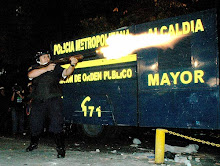








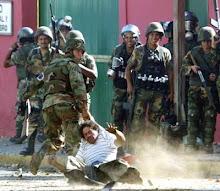












No hay comentarios:
Publicar un comentario